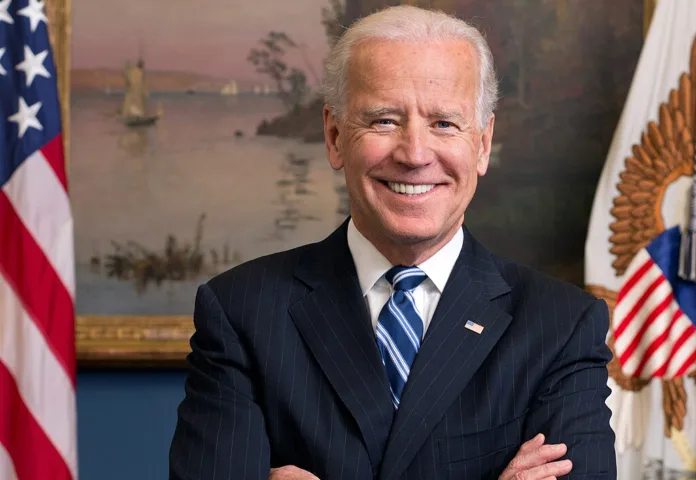President Joe Biden battles internal dissent and poll setbacks amid doubts about his reelection chances
President Joe Biden finds himself in the midst of a political storm as he fights to salvage his reelection bid. Following a disastrous debate performance that left many questioning his ability to secure a second term, Biden’s campaign has been struggling to regain momentum. The president’s troubles have been exacerbated by growing scepticism within his own party, with some prominent Democrats publicly suggesting he consider stepping aside.
The fallout from Biden’s lacklustre debate showing has been swift and severe. Polls indicate a significant shift in support towards his rival, former President Donald Trump. A New York Times/Siena College survey shows Trump now leading nationally among likely voters, reflecting a three-point swing in his favour following the debate. Biden, meanwhile, has faced mounting criticism for appearing incoherent and unprepared during the televised event, further fueling concerns about his fitness for office.
Embed from Getty ImagesIn response to the escalating crisis, Biden has ramped up efforts to shore up support. He has convened meetings with Democratic governors and key party figures in an attempt to rally backing for his candidacy. However, these efforts have been met with mixed results. While some governors have expressed continued support for Biden, others have voiced reservations, highlighting the deepening divide within Democratic ranks.
The president’s inner circle has also been on damage control, attempting to explain away his debate performance as a consequence of jet lag and a lingering cold. Yet, these explanations have done little to quell the growing unease among voters and party members alike. Biden’s image as a strong and capable leader has been severely tarnished, with critics seizing upon his perceived weaknesses to question his ability to lead effectively for another term.
The situation has reached a critical juncture for Biden and his campaign. As pressure mounts and doubts persist, the president faces stark choices ahead. The spectre of internal dissent looms large, with calls for Biden to step aside gaining traction among some influential Democrats. The prospect of a leadership vacuum within the Democratic Party has added another layer of uncertainty to an already tumultuous electoral landscape.
Against this backdrop, Biden’s immediate political future hangs in the balance. His next moves will be closely scrutinized, both by his supporters eager for reassurance and by his opponents seeking to capitalize on his vulnerabilities. As the campaign intensifies, the spotlight remains firmly fixed on Biden as he navigates perhaps the most challenging period of his political career.
Analysis:
Political Perspective:
From a political standpoint, Biden’s struggles threaten to fracture Democratic unity and weaken the party’s prospects in the upcoming election. The calls for him to consider stepping aside reflect deep-seated concerns about his ability to defeat Trump and lead effectively. This internal dissent could undermine morale within the party and diminish voter enthusiasm, making it harder for Democrats to mobilize support behind their nominee.
Moreover, Biden’s declining poll numbers indicate a broader loss of confidence among the electorate, which could have far-reaching implications for Democratic candidates down the ballot. As the party grapples with internal divisions, Republicans are poised to capitalize on any perceived weakness in Biden’s candidacy, potentially shifting the balance of power in key battleground states.
Social Perspective:
On a societal level, Biden’s struggles underscore broader debates about leadership and competence in public office. The scrutiny of his debate performance and subsequent explanations has sparked conversations about age and cognitive ability in politics, raising questions about whether older leaders can effectively handle the demands of the presidency.
These discussions intersect with ongoing debates about representation and diversity in leadership, as Biden’s presidency has been seen as a symbol of continuity and experience. However, his recent challenges have prompted discussions about the need for new leadership and fresh perspectives within the Democratic Party, reflecting broader societal shifts towards inclusivity and change.
Racial Perspective:
From a racial perspective, Biden’s campaign dynamics also touch on issues of representation and equity within the political landscape. As a white male candidate, Biden’s leadership style and policy priorities have been scrutinized through the lens of racial justice and equality. His ability to mobilize diverse coalitions and address systemic inequalities will be critical in rallying support among minority voters, who play pivotal roles in swing states.
Gender Perspective:
In terms of gender, Biden’s candidacy has been shaped by efforts to appeal to women voters, a crucial demographic in national elections. His administration’s policies on healthcare, reproductive rights, and gender equality have been central to his appeal among female voters, who constitute a significant voting bloc. However, his recent setbacks have raised concerns about his ability to maintain support among women, highlighting the importance of gender dynamics in electoral politics.
Economic Perspective:
Economically, Biden’s reelection prospects are intertwined with his administration’s handling of key economic issues, including job creation, infrastructure investment, and healthcare reform. His ability to articulate a compelling vision for economic recovery and growth will be pivotal in attracting support from voters concerned about their financial well-being.
Overall, Biden’s campaign faces a complex landscape shaped by political, social, racial, gender, and economic factors. As the election approaches, the president and his team must navigate these challenges strategically to regain momentum and secure victory in November.
